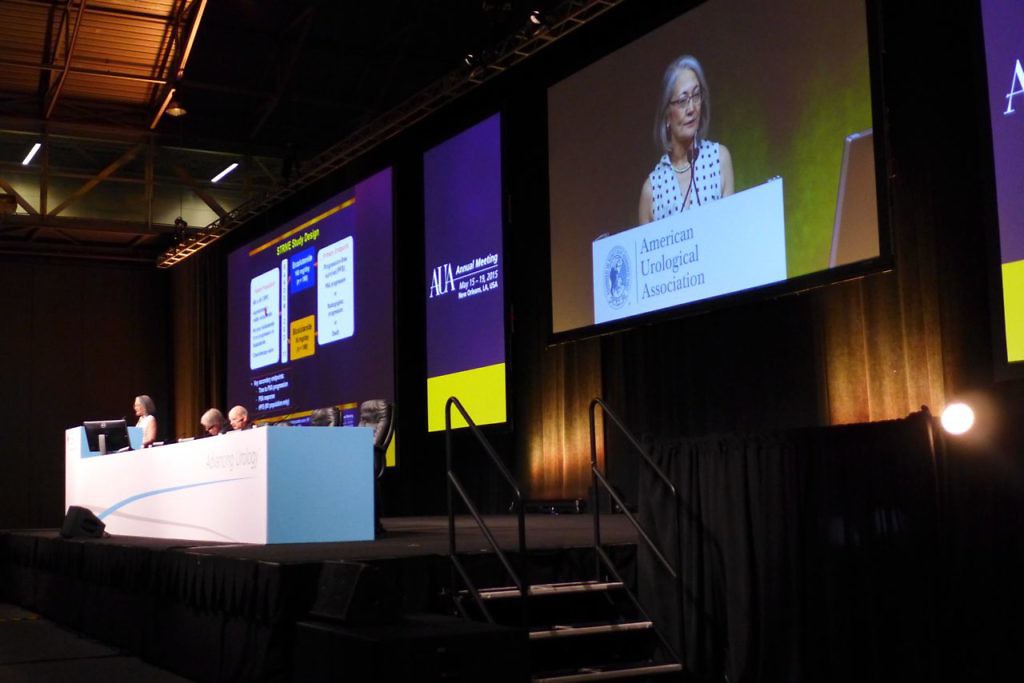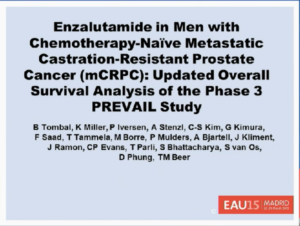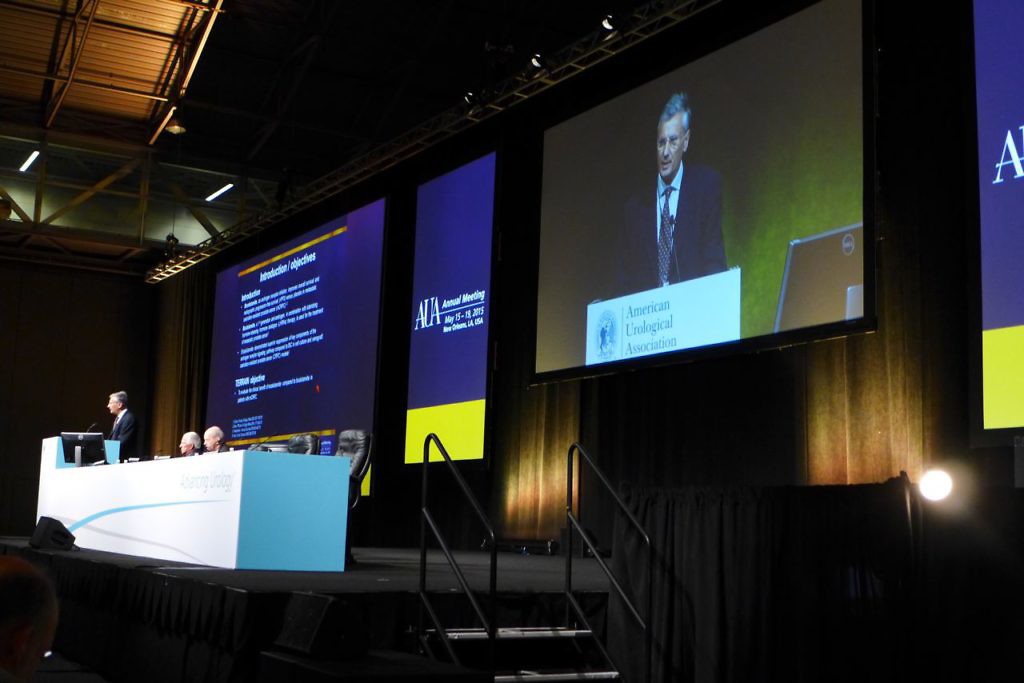Potential of a Novel Non-Invasive Liquid Biopsy Prostate Cancer Biomarker
 We’re continuing our post-meeting coverage of the 2016 Genitourinary Cancers Symposium (ASCO GU) that took place earlier this month in San Francisco.
We’re continuing our post-meeting coverage of the 2016 Genitourinary Cancers Symposium (ASCO GU) that took place earlier this month in San Francisco.
In this post we’re taking a look at the results of a clinical trial with a non-invasive liquid biopsy which in a cohort of patients with prostate cancer identified increased risk of death on abiraterone and enzalutamide, but not taxane chemotherapy.
What struck me listening to this presentation was the simple elegance of an approach, which the presenter likened to the equivalent of “facial recognition” of prostate cancer cells.
As the ASCO GU discussant noted, this could have an impact on clinical trial design, potentially leading to more rapid prostate cancer drug approvals.
Subscribers can login to read more about a biomarker approach, that if validated in a prospective trial, could help identify the optimal sequencing of prostate cancer drugs for patients.
This content is restricted to subscribers
 In yesterday’s post on
In yesterday’s post on  At the recent ASCO 2016 Genitourinary Cancers Symposium (ASCO GU) that took place in San Francisco the week before the JP Morgan Healthcare Conference (JPM), one of the noteworthy presentations was on a novel target for men with advanced prostate cancer.
At the recent ASCO 2016 Genitourinary Cancers Symposium (ASCO GU) that took place in San Francisco the week before the JP Morgan Healthcare Conference (JPM), one of the noteworthy presentations was on a novel target for men with advanced prostate cancer.
 New Orleans – in today’s plenary session at the
New Orleans – in today’s plenary session at the 
 We’ve been following the updates on the PREVAIL study evaluating enzalutamide (Xtandi) versus placebo in metastatic castrate-resistant prostate cancer (CRPC) in the pre-chemotherapy setting for a while now. It’s interesting to see how the data evolves over time as it becomes more mature.
We’ve been following the updates on the PREVAIL study evaluating enzalutamide (Xtandi) versus placebo in metastatic castrate-resistant prostate cancer (CRPC) in the pre-chemotherapy setting for a while now. It’s interesting to see how the data evolves over time as it becomes more mature.


 Today, it was the turn of Astellas and Medivation to announce the results of the TERRAIN study, which is a primarily European phase 2 trial that began in March 2011 in the prechemotherapy setting for castrate resistant prostate cancer (CRPC). The trial met its primary endpoint of progression free survival (PFS).
Today, it was the turn of Astellas and Medivation to announce the results of the TERRAIN study, which is a primarily European phase 2 trial that began in March 2011 in the prechemotherapy setting for castrate resistant prostate cancer (CRPC). The trial met its primary endpoint of progression free survival (PFS).